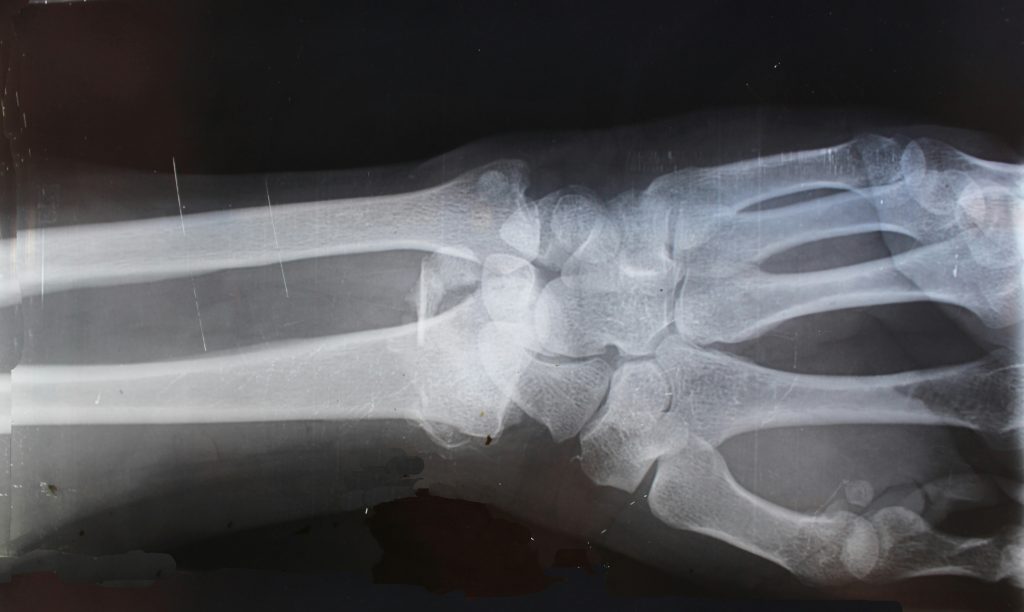Traumatic Brain Injuries: A Closer Look
Traumatic brain injuries (TBIs) are among the most devastating consequences of accidents, often resulting in life-altering impairments. In Olympia, WA, individuals can sustain TBIs due to various incidents such as motor vehicle accidents, falls, assaults, and sports-related injuries.
Unlike other injuries, TBIs can be challenging to diagnose immediately following an accident, as symptoms may not be readily apparent. Understanding the complexities of TBIs is essential for seeking appropriate medical treatment and legal guidance.
For help with a spinal cord injury, please see this page.
Free Case Evaluation
Understanding Traumatic Brain Injuries:
Traumatic brain injuries (TBIs) are complex medical conditions that result from external forces causing damage to the brain. These injuries encompass a broad spectrum, ranging from mild concussions to severe and life-threatening impairments, depending on the severity and location of the trauma.
Causes of TBIs
TBIs can occur due to various accidents and incidents, including:
- Motor vehicle accidents: Collisions involving cars, trucks, motorcycles, bicycles, or pedestrians can result in TBIs due to the impact forces involved.
- Falls: Falls from heights, slips, or trips are common causes of TBIs, especially among older adults and young children.
- Sports injuries: Contact sports, such as football, soccer, and boxing, pose a risk of TBIs due to impacts, collisions, or falls during play.
- Assaults: Physical assaults, violence, or intentional blows to the head can cause TBIs.
- Explosive blasts: Military personnel, firefighters, and individuals exposed to explosive devices or blasts may sustain TBIs, even without direct impact to the head.
- Workplace accidents: Workers in construction, manufacturing, or other high-risk industries may experience TBIs due to falls, falling objects, or machinery accidents.
Symptoms of TBIs
The symptoms of a TBI can vary widely depending on the severity of the injury and the affected areas of the brain. Common symptoms include:
- Headaches: Persistent or severe headaches are a common symptom of TBIs, often accompanied by sensitivity to light or noise.
- Dizziness: Feeling lightheaded, dizzy, or experiencing a loss of balance is typical after a TBI.
- Confusion: Disorientation, difficulty concentrating, and memory problems are common cognitive symptoms of TBIs.
- Mood changes: Irritability, depression, anxiety, or sudden mood swings may occur following a TBI.
- Sensory disturbances: Changes in vision, hearing, taste, or smell can occur after a TBI, affecting sensory perception.
- Physical impairments: Weakness, paralysis, coordination problems, or seizures may result from severe TBIs.
Prompt Diagnosis and Treatment
Early diagnosis and treatment of TBIs are critical for preventing further damage and promoting recovery. Medical professionals may use imaging tests, such as CT scans or MRIs, to assess brain injuries and determine the appropriate course of treatment. Prompt medical intervention, rehabilitation therapies, and ongoing monitoring are essential for managing TBIs and minimizing long-term complications.
Case Results
$4,255,555
Neglect, drowning, and cognitive impairment of a vulnerable adult under DSHS care and supervision.
$2,816,040
Catastrophic career ending injury claim in Grays Harbor County.
$2,501,808
Career ending injury and infection claim in King County.
Our Approach to Traumatic Brain Injury Cases:
At Ron Meyers & Associates, we understand the profound impact that traumatic brain injuries can have on individuals and their families. Our experienced attorneys are dedicated to providing compassionate and effective legal representation to help TBI victims pursue the justice and compensation they deserve. We approach TBI cases with:
- Compassion: We understand the physical, emotional, and financial toll that TBIs can impose on victims and their families. Our team provides personalized support and guidance throughout the legal process.
- Expertise: With decades of experience handling personal injury cases, including TBIs, we have the knowledge and skills to navigate complex legal issues and advocate for our clients’ rights.
- Tenacity: We are committed to pursuing maximum compensation for TBI victims, including damages for medical expenses, lost wages, pain and suffering, and other related losses. We fight tirelessly to ensure our clients receive the compensation they need to rebuild their lives.
How Ron Meyers & Associates Can Help with Traumatic Brain Injury Cases:
If you or a loved one has suffered a traumatic brain injury, navigating the legal process can be overwhelming. At Ron Meyers & Associates, we understand the challenges you’re facing and are here to provide the support and advocacy you need. With our extensive experience in handling traumatic brain injury cases, we have the knowledge and resources to guide you through every step of the legal process.
From investigating the circumstances of your injury to negotiating with insurance companies and, if necessary, representing you in court, we will be by your side to ensure your rights are protected and to seek the compensation you deserve.
Contact us today for a free consultation to learn more about how we can help you during this difficult time.
Frequently Asked Questions About Traumatic Brain Injury Cases:
Traumatic brain injuries (TBIs) can result from various accidents and incidents, including motor vehicle accidents, falls, sports injuries, assaults, workplace accidents, and explosive blasts.
Common signs of a traumatic brain injury include headaches, dizziness, confusion, memory problems, mood changes, sensory disturbances, and physical impairments. If you experience any of these symptoms after an accident or injury, seek medical attention promptly for evaluation.
After experiencing a traumatic brain injury, it’s crucial to seek medical attention immediately, even if symptoms appear mild. Follow your healthcare provider’s recommendations for diagnosis, treatment, and follow-up care.
In Washington, the statute of limitations for filing a personal injury claim, including traumatic brain injury cases, is typically three years from the date of the injury. It’s essential to consult with an attorney promptly to ensure compliance with legal deadlines.
Yes, if your traumatic brain injury resulted from another party’s negligence, you may have grounds for a personal injury claim. Negligence occurs when someone fails to exercise reasonable care, leading to harm or injury to another person.
Victims of traumatic brain injuries may seek various types of compensation, including medical expenses, rehabilitation costs, lost wages, pain and suffering, emotional distress, loss of consortium, and punitive damages in cases of gross negligence or intentional misconduct.
Proving negligence in a traumatic brain injury case requires demonstrating that the at-fault party owed you a duty of care, breached that duty through negligent actions or omissions, and caused your injuries as a direct result of their negligence.
Medical evidence, such as diagnostic tests, imaging studies, medical records, and expert testimony, plays a crucial role in establishing the severity of the traumatic brain injury, its impact on your life, and the need for ongoing medical treatment and rehabilitation.
If the insurance company denies your claim or offers an inadequate settlement amount, it may be necessary to pursue legal action through litigation. An experienced attorney can advocate on your behalf and negotiate for fair compensation or represent you in court if necessary.
An attorney with experience handling traumatic brain injury cases can provide valuable legal guidance, advocate for your rights, gather evidence to support your claim, negotiate with insurance companies, and pursue maximum compensation on your behalf.
The time it takes to resolve a traumatic brain injury case varies depending on factors such as the complexity of the case, the extent of the injuries, the availability of evidence, and whether the case goes to trial. Some cases may settle relatively quickly, while others may take longer to reach a resolution.
Yes, Washington follows a comparative negligence rule, allowing injured parties to pursue compensation even if they were partially at fault for the accident. However, your compensation may be reduced in proportion to your percentage of fault.
While there are no specific limitations on the amount of compensation you can receive for a traumatic brain injury, factors such as the severity of your injuries, the extent of your damages, and applicable insurance policy limits may impact the final settlement amount or court award.
When selecting an attorney for your traumatic brain injury case, consider factors such as their experience handling similar cases, their track record of success, their approach to client communication, and their commitment to personalized representation.
At Ron Meyers & Associates, we have over 30 years of experience serving the Western Washington community, handling hundreds of personal injury cases, including traumatic brain injury cases. Our team is dedicated to providing compassionate yet aggressive legal representation to pursue favorable outcomes for our clients.
Traumatic brain injuries can have lasting effects on cognitive function, behavior, and emotional well-being. Long-term consequences may include memory problems, difficulty concentrating, mood swings, and increased risk of neurodegenerative diseases like Alzheimer’s.
Yes, traumatic brain injury victims may be eligible for various forms of financial assistance, including disability benefits, rehabilitation programs, and compensation through personal injury claims. An experienced attorney can help you explore your options and pursue the financial support you need for medical expenses and other costs associated with your injury.















